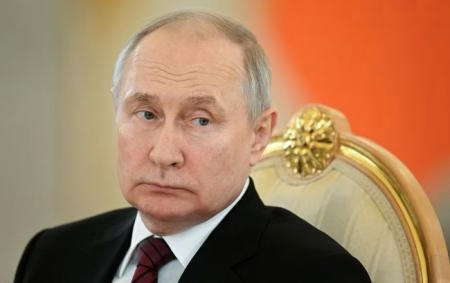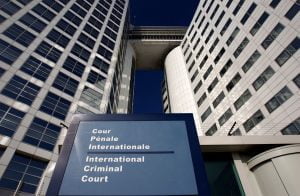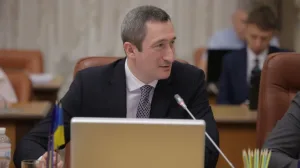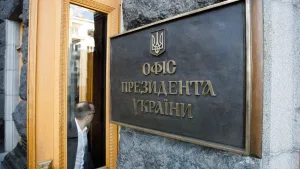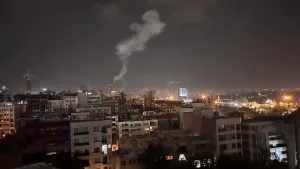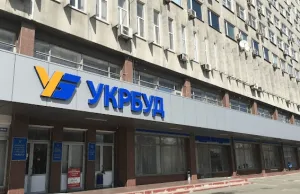Despite attempts to cut Russia’s oil revenues, European countries continue to indirectly fill Vladimir Putin’s military treasury. The key role here is played by Russian oil supplies, ‘washed’ at refineries in India.
More details on this can be found in the RBC-Ukraine article, as reported by Kontrakty.UA
Russian oil for India: key figures
The partnership between India and Russia has deep roots. During the Cold War, India adopted a non-alignment position, refusing to take part in efforts to curb communism in Asia. In return, it was rewarded with a flow of weapons and defense technologies from Moscow.
After the collapse of the USSR, Russia remained India’s largest supplier of arms, as well as parts needed for Soviet-era military equipment. India is concerned about China’s territorial claims and its influence in the region, and thus hopes that its friendship with Russia will restrain Beijing’s ambitions.
Equally important is oil. During a July meeting, Indian Prime Minister Narendra Modi praised Vladimir Putin for supplying oil, which helped curb prices. This issue was also discussed a month later during a visit to Ukraine. By that time, India had overtaken China to become the largest importer of Russian oil, although it denied any political motivations behind this growth.
“There is an oil strategy for buying oil. There is a market strategy for buying oil,” Foreign Minister Subrahmanyam Jaishankar said.
This explanation is at best incomplete, and at worst, insincere. The sale of oil provides Putin with a lifeline to finance his war against Ukraine. “You can stop Putin and stop his economy,” President Volodymyr Zelensky said after meeting with Modi, referring to the help in ending the war by refusing Russian oil.
India covers about 85% of its needs through imports. The country ranks in the top three for consumption and holds second place globally for oil imports. In 2021, it was importing 4.2 million barrels per day, with 24% coming from Iran, 16% from Saudi Arabia, 10% from the US, and only 2% from Russia. By mid-2024, the total volume had increased to 4.8 million barrels per day, with Russia’s share reaching 41%. The sharp rise was clearly driven by price.
After Russia’s invasion of Ukraine, Western countries imposed a ban on seaborne oil deliveries. However, India and other countries did not plan to participate in the embargo. In December 2022, the G7 countries announced a price cap of $60 per barrel. This cap effectively allowed India to increase its imports at a discount.
With the price drop, oil supplies grew almost 13 times in the first year, from less than $2.5 billion in 2021-2022 to more than $31 billion in 2022-2023. The trend continued, and in 2023-2024, imports grew to approximately $140 billion. The savings effect over two years (if India hadn’t diversified its supplies) is estimated at between $13 billion and $25 billion.
The increase in purchases affected the export of refined petroleum products. In 2023, the country exported fuels worth $86 billion, making it the second-largest exporter in the world.
The main beneficiary was the Reliance Industries Limited holding, with the largest refinery complex in Jamnagar, Gujarat. Another major refinery benefiting from cheap Russian oil is Nayara Energy (49.1% owned by Rosneft). Both companies have long-term contracts, while state-owned refineries buy oil on the spot market. This suggests that Reliance and Nayara have closer ties with Russian suppliers.
In the first four months of 2024, the export of refined petroleum products was valued at more than $70 billion, or about $210 billion annually. Despite the oil embargo, the main consumers were EU countries, the United States, and the United Kingdom. Thus, the sale of oil to India, directly or through a “shadow fleet” of tankers, allowed Russia to circumvent sanctions.
How Europe is indirectly financing Putin’s war machine
By purchasing “washed fuel” in India, European countries are financing Russia’s war in Ukraine. This warning comes from a report prepared by the Center for the Study of Democracy (CSD) in Sofia, Bulgaria.
According to the report, energy sanctions against Russia are failing due to “glaring loopholes” that were deliberately left open, as the G7 countries feared excessive spikes in energy prices. India took advantage of this opportunity, increasing its imports of Russian oil by 13% in the first 8 months of 2024, reaching €27 billion. During this same period, 72% of crude oil imports were delivered by “shadow” tankers with questionable or insufficient insurance.
This year, the European Union received 13% of its marine diesel and aviation fuel from India (20% more than last year). Additionally, imports from the three main Indian refineries that process Russian crude oil increased by 58%.
In fact, this is entirely legal. However, the increase is occurring despite efforts by the EU and G7 allies to maintain the price cap and prohibit the direct import of most Russian oil into the bloc. This highlights how ineffective these sanctions have been two years after their introduction.
Furthermore, India, which replaced Saudi Arabia as the main fuel supplier, also began accepting Russian shipments this year through sanctioned tankers.
“By allowing third countries, such as India and Turkey, to re-export petroleum products made from Russian oil… the EU is giving the Kremlin the opportunity to replace the lost market in Europe,” Martin Vladimirov, senior analyst at CSD, says.
Brussels is well aware of the loopholes that allow for the legal purchase of fuel of Russian origin if it is processed in third countries. However, the latest data illustrates that, in its attempt to cut off Kremlin revenue, particularly for the war against Ukraine, the European Union continues to finance Moscow.
“Additional revenues have been able to cover the enormous costs of military operations in Ukraine,” Vladimirov added.
Additional money is a long-awaited relief for Putin, who needs funds to sustain the budget amid the unstable ruble and increased military spending, all while the economy slows and inflation remains high.
As stated in the report, European payments for “washed” petroleum products in India have significantly increased. It is impossible to prove how much Russian-made fuel the refineries sold to Europe. However, since the refineries are largely dependent on Moscow, part of the oil is inevitably delivered to the EU. As of August, three Indian refineries exported 6.7 million tons of oil to European countries, bringing in €5.4 billion in revenue from oil sales.
According to CSD, this year “shadow” tankers delivered nearly three-quarters of Russian crude oil to India, although the country had previously refused to accept sanctioned vessels. One of them, the tanker Legacy, continues to operate after being sanctioned by Brussels in June. Since then, the tanker has delivered over 200,000 tons of oil to the Jamnagar complex.
These vessels are typically old and pose a significant environmental threat. A recent investigation by Politico and the nonprofit journalistic group SourceMaterial uncovered at least nine instances where tankers from the “shadow fleet” left large oil spills behind.
The “shadow fleet” also allows Russia to reduce freight costs and sell oil above the price cap. Despite the discount, the average price of Urals crude oil this year was $70 per barrel, which is $10 above the cap. This has helped the Russian economy withstand the challenges posed by the war.
Since the beginning of 2024, exports of oil and gas from Russia have brought in $180 billion. This is more than the planned military spending for 2025, which is set at $145 billion.
As Politico reports, the European Commission and the companies Reliance and Nayara did not respond to requests for comment on the situation.
If the European Union truly wants to undermine Putin’s military efforts in Ukraine, it must ban supplies from Indian refineries that are increasing their purchases of Russian oil. It should also prohibit operations with those refineries that are at least partially owned by Russian companies, according to Vladimirov.
However, his conclusions are met with resistance within the bloc. Currently, Brussels is preparing the 15th sanctions package, which is primarily focused on measures against the “shadow fleet.” Last week, ambassadors failed to reach an agreement. According to Sky News, two countries opposed the package, one of which is Slovakia, which wants to maintain the option of supplying diesel fuel and other petroleum products obtained from Russian oil at its refinery. The discussion of the package is set to continue later.
“The fact that India accepts sanctioned tankers is unacceptable. But what can we do about it?” said one senior EU diplomat, speaking on condition of anonymity.
Tags: india investigation putin war russian war ukraine war washed russian oil
